Meet the 21st-century Robinson who never leaves his deserted island
Mauro Morandi's failing catamaran was carried to Budelli Island nearly three decades ago by chance. He never left.
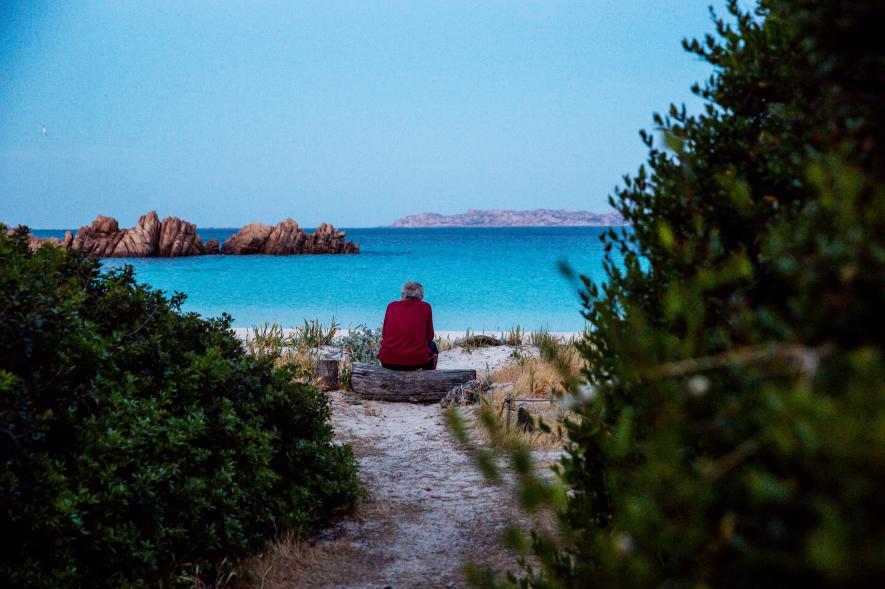
Mauro Morandi has lived alone on Budelli Island for 28 years. “What I love the most is the silence,” he says.
Seventy-eight-year-old Mauro Morandi often walks along the rocky shores of Budelli Island and looks out over the disconsolate sea, feeling dwarfed by the phantom forces that tug and twist the tides.
“We think we are giants that can dominate the Earth, but we’re just mosquitos,” Morandi says.
In 1989 on a stretch of water between Sardinia and Corsica, with a crippled engine and anchor adrift, Morandi’s catamaran was gripped by these same inexorable forces and carried to the shores of Budelli Island. When he learned that its caretaker was retiring from his post in two days, Morandi—long disenchanted with society—sold the catamaran and took his place.
He has lived alone on the island for the past 28 years.
Budelli Island is comprised of seven islands, and Budelli is considered the most beautiful among them for its Spiaggia Rosa, or Pink Beach. The rose-colored sand derives its unusual hue from microscopic fragments of corals and shells, which have been slowly reduced to powder by the relentless shifting of the waves.
In the early nineties, Spiaggia Rosa was dubbed a place of “high natural value” by the Italian government. The beach was closed off to protect its fragile ecosystem, and only certain areas remain accesible to visitors. The island rapidly went from hosting thousands of tourists per day to a single heartbeat.
“I will never leave," Morandi says. "I hope to die here and be cremated and have my ashes scattered in the wind.” He believes all life is eventually reunited with the Earth—that we are all part of the same energy.
This conviction in our interconnectedness propels Morandi to remain on the island without compensation. Every day he collects wayward plastic that washes up on the beach and tangles with the delicate flora and fauna. Despite his aversion to people, he guards Budelli’s shores with fervor and educates summertime visitors about the ecosystem and how to protect it.
“I’m not a botanist or a biologist,” Morandi says. “Yes, I know names of plants and animals, but my work is much different than this. To be able to care for a plant is a technical task—I try to make people understand [why] the plant needs to live.”
Morandi believes that teaching people how to see beauty will save the world from exploitation more effectively than scientific minutiae. “I would like people to understand that we must try not to look at beauty, but feel beauty with our eyes closed,” he says.
Winters on Budelli are particularly beautiful. Morandi endures long stretches of time—upwards of 20 days—without any human contact. He finds solace in the quiet introspection it affords him, and often sits on the beach with nothing but the operatic sounds of the wind and waves to punctuate the silence.
“I’m sort of in prison here,” he says. “But it’s a prison that I chose for myself.”
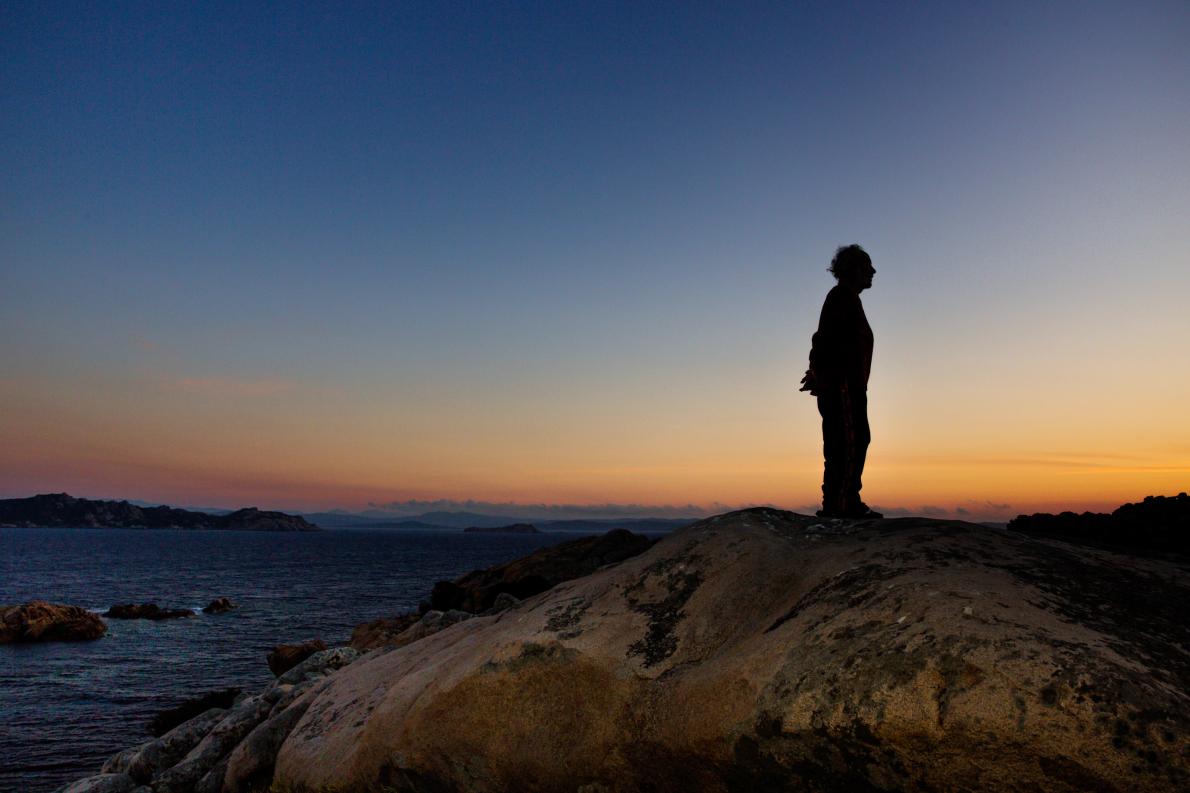 |
To Mauro, the silence in winter when there isn’t a storm and no one is around, but also the summer silence of sunset.
Morandi passes the time with creative pursuits. He fashions juniper wood into sculptures, finding faces hidden in their nebulous forms. He reads zealously and meditates on the wisdom of Greek philosophers and literary prodigies. He takes pictures of the island, marveling at how it changes from hour to hour, season to season.
This is not unusual for people who spend long periods of time alone. Scientists have long posited that solitude generates creativity, as evidenced by scores of artists, poets, and philosophers throughout the ages who produced their greatest works in seclusion from society.
The benefits of solitude may not be universally beneficial, however. “Solitude can be stressful for members of technologically advanced societies who have been trained to believe that aloneness is to be avoided,” explains Pete Suedfeld in Loneliness: A Sourcebook of Current Theory, Research and Therapy. But there are still cultures around the world in which solitary life remains a venerated tradition. Buddhist monasticism, for example, encourages spiritual devotion and scholarly pursuit above seeking bodily pleasures.
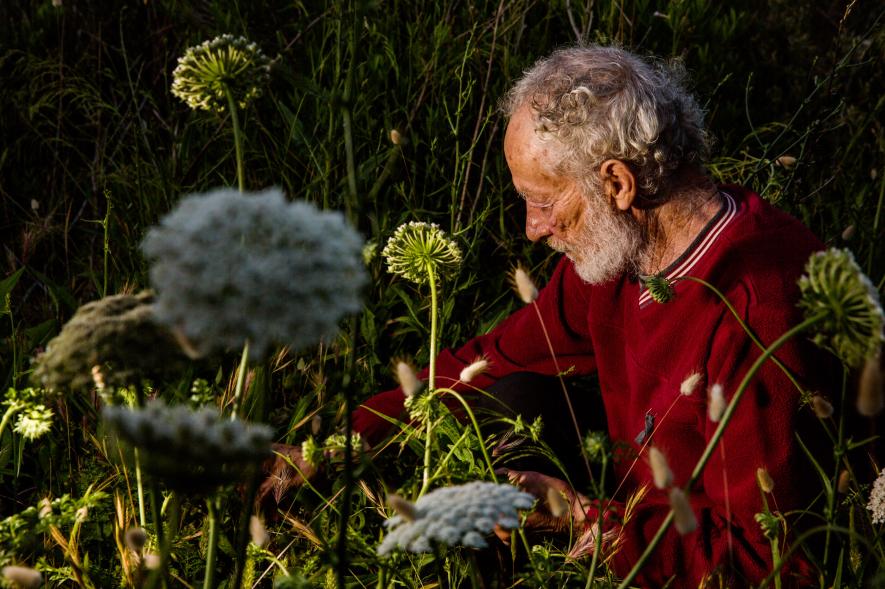 |
Despite his aversion to people, he guards Budelli’s shores with fervor and educates summertime visitors about the ecosystem and how to protect it.
But amidst rapid globalization, humans' ability to experience true solitude is perhaps a thing of the past. In response to increasing development of the region, an internet company established a Wi-Fi connection on Budelli, connecting Morandi and his beloved piece of paradise to the world through social media. Embracing this new form of communication is his concession on behalf of a larger purpose—to facilitate a bond between people and nature by exposing them to its beauty. A bond Morandi hopes will motivate people to care for the withering planet.
“Love is an absolute consequence of beauty and vice versa,” Morandi says. “When you love a person deeply you see him or her as beautiful, but not because you see them as physically beautiful … you empathize with them, you’ve become a part of her and she’s become a part of you. It’s the same thing with nature.”/.
( VNF/ National Geographic )
Recommended
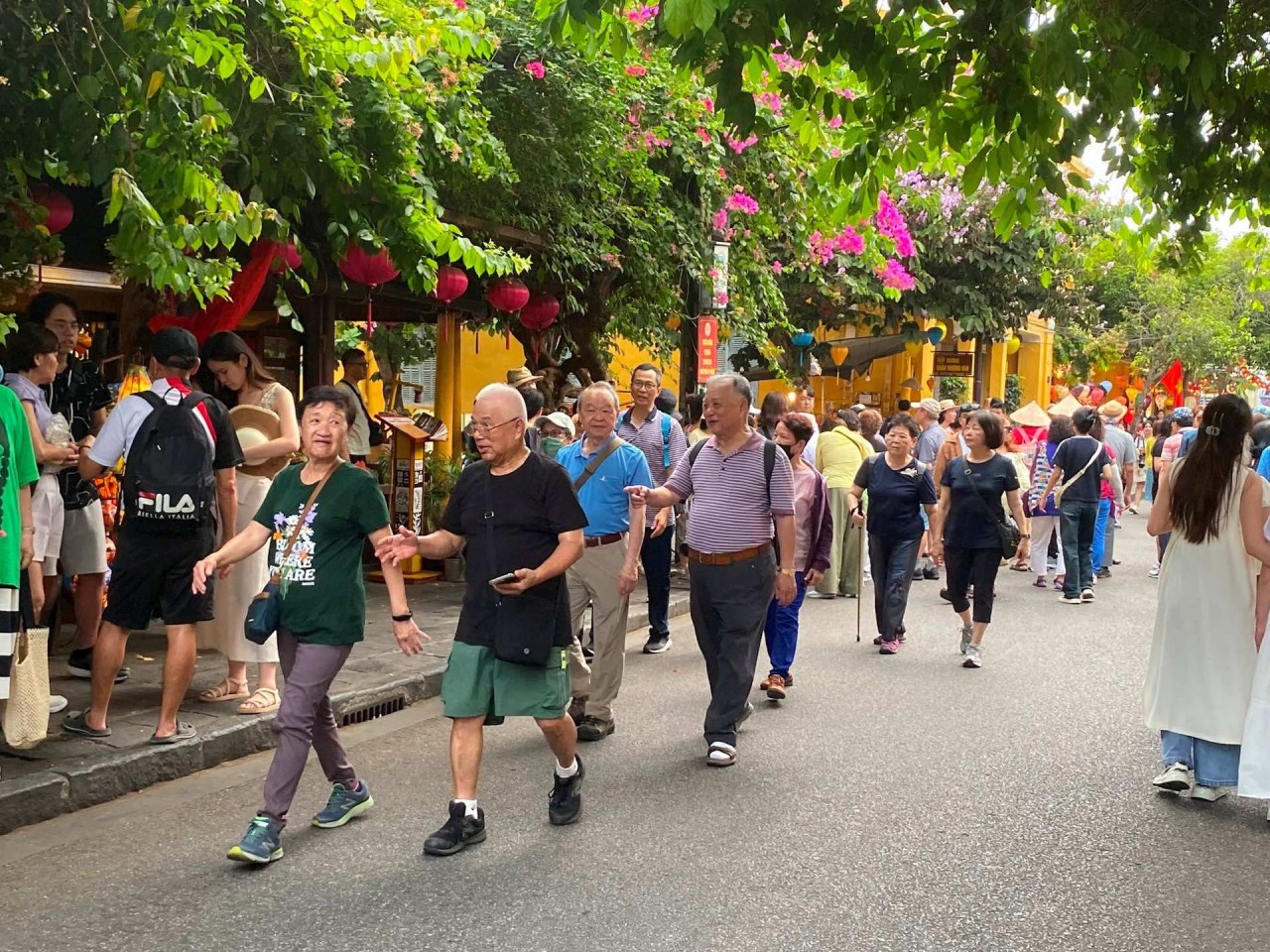 Travel
Travel
Strategies for Sustainable Growth of Vietnam’s Tourism from International Markets
 Travel
Travel
Vietnam Strengthens Its Presence On The Global Tourism Map
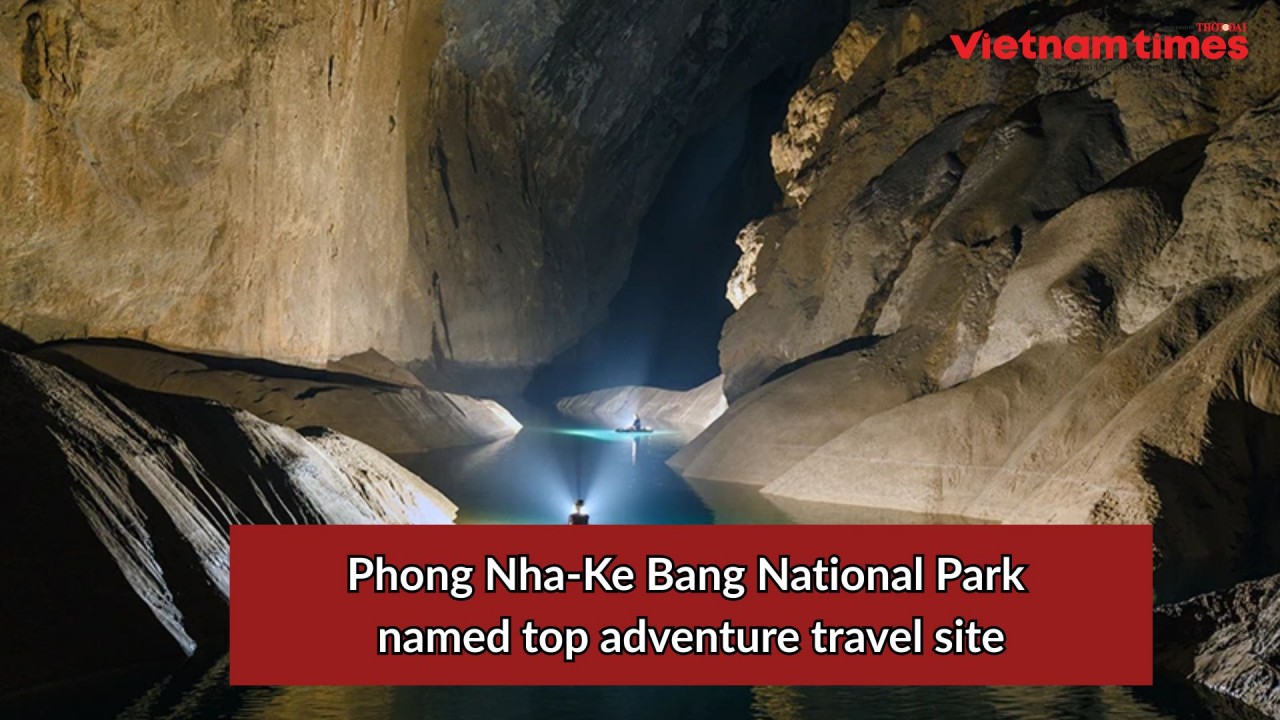 Multimedia
Multimedia
Phong Nha-Ke Bang National Park Named Top Adventure Travel Site
 Travel
Travel
Vietnam Welcomes Record-High Number of International Visitors
 Travel
Travel
Luxury Train From Hanoi To Hai Phong To Be Launched In May
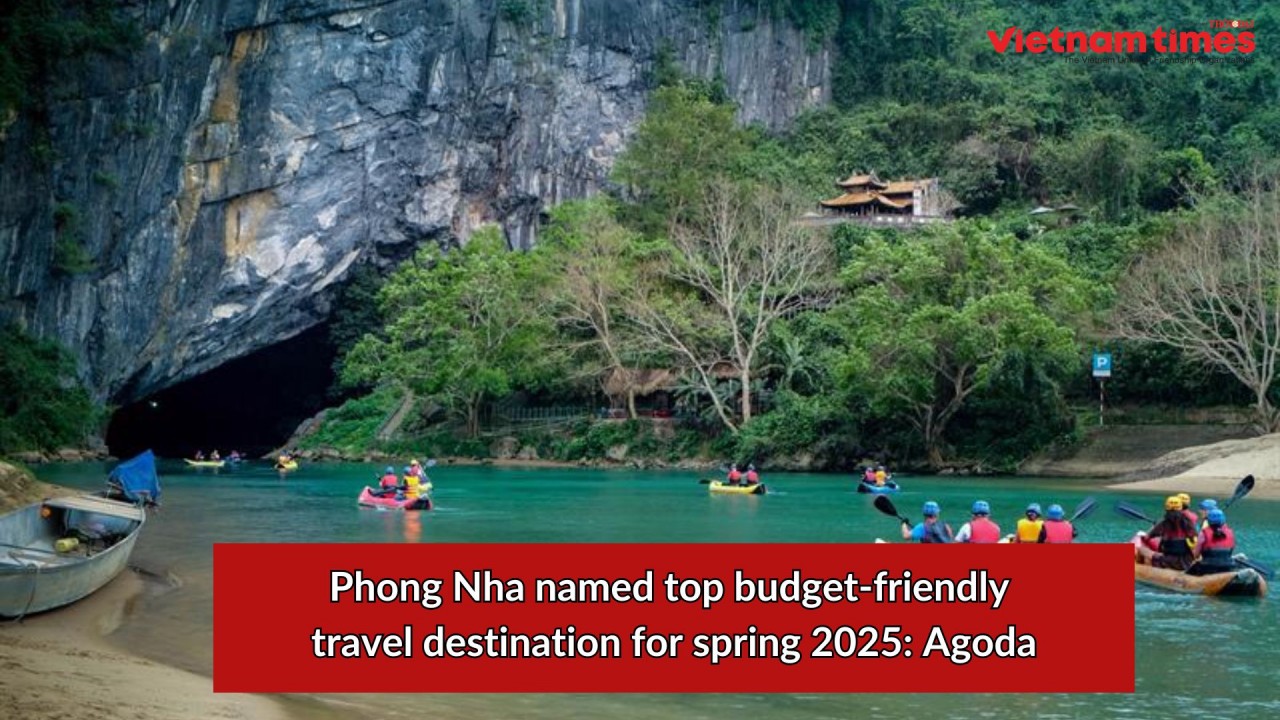 Travel
Travel
Phong Nha Named Top Budget-Friendly Travel Destination for Spring 2025: Agoda
 Travel
Travel
Four Indian Films Introduced to Lao Cai Audience
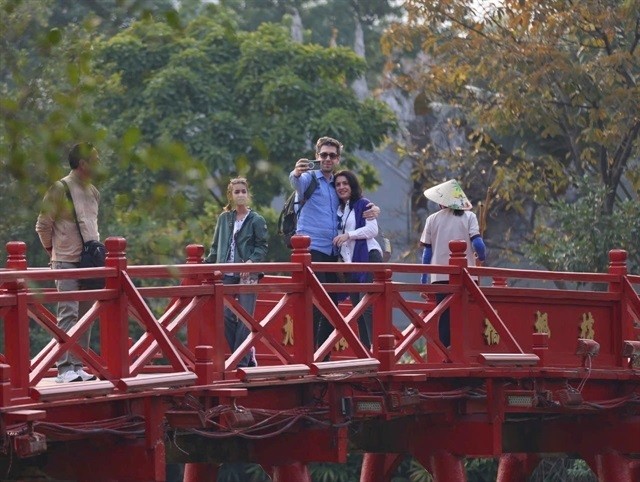 Travel
Travel
